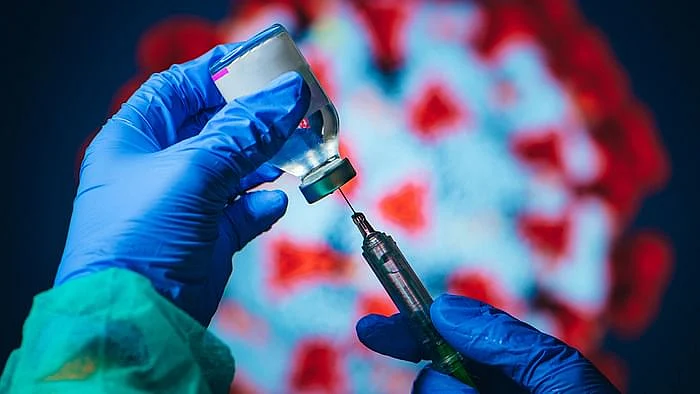Routine Genomic Surveillance: India’s Response to New COVID Strain
5% of positive COVID-19 cases will be sent for genome sequencing, apart from the UK returning passengers.

advertisement
India’s COVID-19 National Task Force met on Saturday, 26 December, to discuss containment and surveillance strategy after reports of the new strain of coronavirus were found in UK, Nigeria and South Africa. The meeting, convened by Indian Council of Medical Research (ICMR), has suggested that there is no need to change the current treatment protocol for managing the highly contagious Sars-CoV-2 virus.
However, the task force has concluded that it is important to track travellers from international airports, especially from the UK between 25 November and 20 December to ensure any potentially infected passengers are kept in isolation to prevent the transmitting of the virus, reported Livemint.
Currently, six laboratories are testing over 50 samples of passengers who have come in from the UK in the past month, and the extensive list of all UK arrivals in the past month has been shared by Bureau of Immigration.
UK Returnees and 5% of Positive Cases in India to Undergo Genome Sequencing
The NTF has recommended routine genomic surveillance, where 5% of positive COVID-19 cases from around the country will be sent for genome sequencing, apart from the UK returning passengers.
The genomic surveillance consortium, INSACOG, has been formed under the leadership of the National Centre for Disease Control (NCDC), New Delhi for surveillance of SARS-CoV-2 in the country, reported NDTV.
The meeting was under the co-chairpersonship of Dr Vinod Paul, Member NITI Aayog and Dr Balram Bhargava, Secretary, Director General ICMR and had members from the Health Ministry as well as All India Institute of Medical Sciences (AIIMS). They concluded that for early detection, enhanced genomic surveillance will continue. The officials concluded that the new strain, like all RNA viruses will mutate. They recommended that social distancing and hygiene protocols must be followed, reported Livemint.
The health ministry said the current treatment protocol can continue since ICMR’s testing protocol is unlikely to miss infected cases. "Since ICMR has always advocated use of two or more gene assays for testing SARS-CoV-2, it is unlikely to miss infected cases using the current testing strategy," the ministry said in a statement, reported NDTV.
(With inputs from Livemint and NDTV)
(At The Quint, we question everything. Play an active role in shaping our journalism by becoming a member today.)